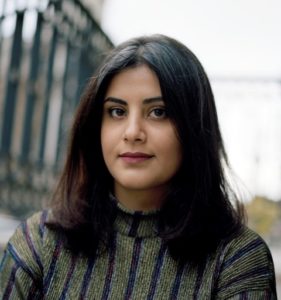This article was published more than 3 years ago.
On September 11, 2001, the world changed forever. Twenty years after the attacks, Poonam Joshi, director at the Funders’ Initiative for Civil Society, and Lydia Cocom, senior program associate at the Fund for Global Human Rights, explain the impact that 9/11—and the ensuing securitization of civic space—has had on human rights defenders and activism.
How have the events of 9/11 impacted the work of human rights defenders over the past 20 years?
In the aftermath of 9/11, the global counterterror landscape shifted dramatically. The attacks enabled governments and transnational institutions to grab expansive new powers—the consequences of which continue to reverberate and evolve today.
Between 2001 and 2018, 140 governments passed new counterterrorism and security laws. The United Nations (UN) and other transnational bodies developed norms for governments and private actors with the stated aim of ensuring systems—including financial and banking systems, travel routes, and social media platforms—were not used to enable terrorism or violent extremism.
Unfortunately, governments have weaponized and abused many of their new powers to target journalists, political rivals, activists, and ultimately seek to undermine the concept of human rights itself.
Nearly all parts of the human right sector have been deeply affected, including children’s rights, women’s rights, and pro-democracy movements. By undermining human rights and eroding democracy, governments are actually making communities less free and less safe.
How have national security measures been used to limit the work of activists?
The Funders’ Initiative for Civil Society (FICS)—a donor collaborative providing analysis and resources to strengthen civic space—has identified three interconnected strategies that governments are using to restrict the work of activists under the aegis of security. They call it the security playbook.
The first strategy is the abuse of counterterror and security laws to criminalize and disrupt human rights work. Public policy issues (such as health, migration, or the environment) are increasingly framed as security issues and human rights defenders are labeled terrorists or enemies of the state. Examples of nonviolent activists charged under terror or sedition laws range from a Saudi women’s rights activist, to French climate protesters, to pro-democracy children’s book authors in Hong Kong.

Under the guise of seeking to pre-empt terror threats, governments in every region have also instituted cumbersome regulations and granted authorities the power to monitor and interfere in nonprofits’ work. In Uganda, a number of mainstream human rights groups challenging government abuses were falsely accused of funding terrorism and had their bank accounts frozen. In India, access to foreign funding has been restricted. And in Guatemala, a recent bill imposes burdensome requirements and controls on civil society organizations.
The second component of the playbook is the use of information technologies to surveil and censor actors perceived to be a threat to the state and its interests. Responding to increasing demand, tech, defence, and security companies are developing and supplying states with new tools to monitor individuals and restrict access to information. From recent revelations about the abuse of the Pegasus hacking tool, to the increasing trend of indiscriminate internet shutdowns, to overt censorship and abuse of content moderation tools on social media platforms, states are making use of these technologies on a scale previously unimaginable to target dissenting voices. The COVID-19 pandemic is the latest crisis that has normalized invasive surveillance and control of the digital space, as states clamour for tech-based solutions to political and social upheaval.
Finally, governments rely on fear-based narratives to foster public acceptance for concentrated state power and the abuse of security measures. We see this tactic recycled across countless contexts—for example, Hungarian Prime Minister Viktor Orbán claiming civil rights activists are dangerous foreign agents or President Rodrigo Duterte of the Philippines accusing human rights groups of being militant communist fronts. These narratives delegitimize human rights commitments and encourage hostility toward anyone who challenges entrenched power structures.
What current or future trends do you see in the way security measures are misused to limit or target activists?
We anticipate that governments will increasingly turn to the security playbook as their go-to tool for responding to all kinds of future crises—including climate, health, and political events. That has grave implications for human rights activists and civic space. The COVID-19 pandemic, for example, shows how governments will use a public health crisis to expand security measures, entrench intrusive surveillance, and hang on to emergency powers—all of which allows them to restrict civic freedoms and repress peaceful activists and critics.
While the scale of the public health emergency may have warranted unprecedented action, there is evidence that many governments have used these powers to curtail dissent. The International Center for Not-for-Profit Law’s COVID-19 Civic Freedom Tracker has identified 57 countries where the pandemic response affected freedom of expression, 60 where it affected privacy, and 150 where it limited assembly. Many of these measures adapted or exploited security laws introduced since 9/11. Fund grantees are both involved in pushing back against these undue crackdowns, and also modelling how civil society is key to addressing the pandemic’s impact.
What can we do to counter this abuse of security frameworks and safeguard the space for activists going forward?
Civil society organizations are increasingly aware of the dangers posed by the security playbook, and they’re making some important strides toward disrupting it. However, the field of actors working to counter this threat remains small, fragmented, and massively under-resourced.
In response, FICS, along with the Fund, has launched the Global Initiative on Civic Space and Security—a groundbreaking opportunity for funders to collaborate at scale to seed a networked, cross-sector civil society response to counter closing civic space and strengthen key democratic institutions.
Since 9/11, governments have abused national security framing to consolidate power and crackdown on dissent. By disarming the security playbook and building civic power, we envision a different interpretation of what it means to live with security—a world where people can come together freely and safely to claim their rights, demand accountability, and advocate for constructive solutions to society’s problems.